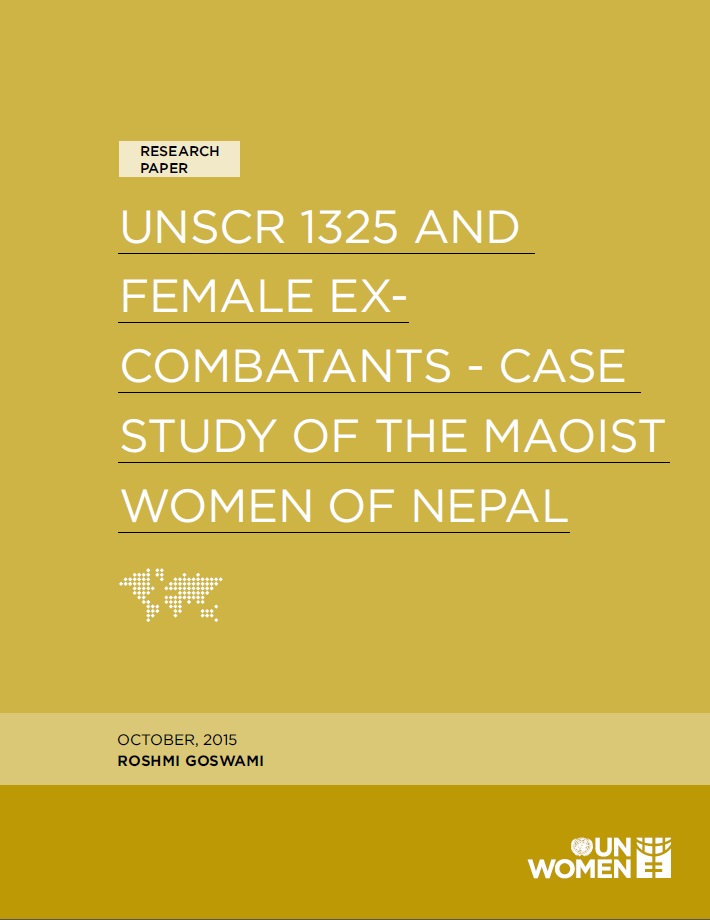UNSCR 1325 and female ex-combatants: Case study of the Maoist women of Nepal
This paper attempts to document and analyze the realities of Maoist women combatants in conflict and post-conflict Nepal within the contrasting narratives of victimhood and agency. It looks at their experiences at entry, and during the active conflict, as well as in the post-conflict period, and examines the continuum of gender inequalities faced by these women right through to the peacebuilding and DDR processes. It discusses the issue of their ‘agency,’ and the linkages between class, caste, ethnicity and historical context that informed this agency and shaped their political consciousness.
The research argues for the use of the CEDAW framework of substantive equality to address issues faced by the Maoist women, including their experiences of discrimination in the transition period, and their exclusion from peacebuilding efforts. It suggests that meaningful reintegration requires a comprehensive approach that factors in both victimhood and agency, and recommends going beyond meeting a checklist of technicalities to an expanded and deeper engagement aimed at a full transformation of both the conditions and position of the Maoist women, to allow them to channel their agency towards building durable peace.










